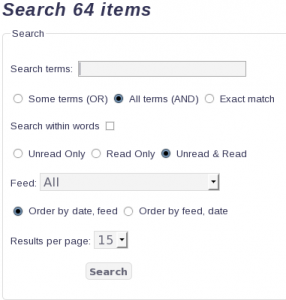Theoden is a guest blogger writing his first post for Yet Another Linux Blog. The views expressed inside this post are part of his personal experience and opinions regarding Foresight Linux. I’d like to thank him for taking the time to make Linux better with constructive criticism as well as the many bug reports and fixes he contributed to the Foresight Linux community. Click Theoden’s name above for more information on him.
I have decided – after running Foresight for two months – to no longer use Foresight Linux on my systems. Let me say however that I found the experience interesting and dare I say – challenging. Everyone in the IRC channel was great – very friendly – and most tried to be helpful.
I thought it might be helpful and instructive to provide an explanation as to why I am not going to use Foresight any longer, rather than just disappear. Hopefully, in doing so I may contribute to Foresight becoming a better distro that I might want to run in the future. So, here goes ….
Concerns With Foresight Linux
Conary: When you read about conary it all sounds very exciting and innovative with many really good features. However – when you install Foresight and actually use conary – it doesn’t take too long to realize that unless you are a developer or very involved packager – very little of conary’s goodies really touch you or help you (with the exception of rollback).
However – it’s negatives do impact you as a user:
- It is very complex and difficult for the average user to understand and use with any effect
- It is hard to locate individual packages and make sure you have what you need when things are failing to work right
- The idea of ‘group’s puts numerous things together making it somewhat confusing to sort out when a dependency is not met for an app you really need.
Development and QA: To be very honest – the development of this distro ‘seems’ from my perspective to be done as a fun project – almost a ‘toy’ if you will – for the creator and a couple of his ‘close’ friends. Everything seems to be about advancing to the next version of things – the constant cutting edge challenge of adding in the latest or something really new – without ever really QA’ing and stablizing the existing released code. So problems users are having never really get fixed properly. And this leads to the next concern ….
JIRA: This is the issue tracker for Foresight. By and large – it appears that issues that don’t personally effect the developers are ignored. I personally have an issue in the tracker concerning sound – which has been there for over 30 days and no one has done anything with it. I finally figured out what was causing the break – but it requires the devs to fix the code. But they have not – and ignore the issue because it works fine for them. Many people have complained about sound issues – but the developers are concerned always with developing the latest code for the next cutting edge release instead of stopping to fix the broken code and solve problems. Poor QA – poor response to user problems.
Conclusion: So – Why Use Foresight? Given the above issues that concern me, I must ask the inevitable question – “Why use Foresight then?” And frankly – I can come up with no compelling reason to do so. Outside of cutting edge gnome – it offers me nothing I cannot get elsewhere – in debian or slackware or archlinux, etc. And those distros are more stable – address issues that are legitimate user concerns – work hard to QA their distros – and in general put out a more user friendly product. The truth is – it’s all linux. So what really counts then is product presentation – QA testing – responsiveness to user problems – and stability providing the ability for the users to do actual work with their linux systems without always trying figure out why something doesn’t work. These things all need real work in Foresight Linux.
The result for me then is that I have returned to Debian. I wish only the best for Foresight Linux and it’s developers and users. I hope some of the issues that have led to my decision will be addressed and that one day I might come back and give it another go. I believe there’s a lot here to like and a great deal of talent. Thank you for your patience with me.
Sincerely,
Theoden
